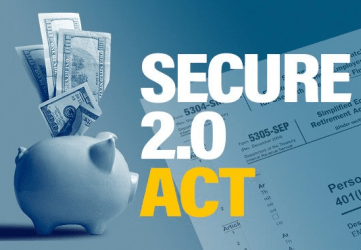Medicaid audits can be a daunting experience, especially if you are unprepared. Understanding the intricacies of a Medicaid audit and how to defend against it can save you from significant stress and potential financial penalties. This article will guide you through the essentials of Medicaid audit defense, ensuring you know what to expect and how to protect your rights and assets in Delaware.
What Triggers a Medicaid Audit?
Medicaid audits are typically triggered by various factors, including irregular billing patterns, high reimbursement claims, anonymous tips, or routine reviews. In Delaware, as in other states, Medicaid audits aim to ensure compliance with federal and state regulations, identify fraud, and recover improperly paid funds. Knowing the triggers can help you stay vigilant and maintain accurate records.
Types of Medicaid Audits
There are several types of Medicaid audits, each with its specific focus:
- Comprehensive Error Rate Testing (CERT) Audits: These audits measure the accuracy of payments made under the Medicaid program.
- Recovery Audit Contractor (RAC) Audits: RAC auditors review claims submitted to identify and correct improper payments.
- Unified Program Integrity Contractor (UPIC) Audits: These audits focus on detecting and preventing fraud, waste, and abuse.
- State Medicaid Agency Audits: Conducted by state agencies to ensure compliance with state-specific Medicaid requirements.
Steps to Take When Facing a Medicaid Audit
If you are notified of a Medicaid audit, it is crucial to take the following steps:
- Review the Audit Notice: Carefully read the audit notice to understand the scope and requirements. Note any deadlines for submitting documentation or responses.
- Organize Your Records: Gather all relevant documents, including billing records, patient files, and correspondence. Ensure that your records are complete, accurate, and well-organized.
- Consult a Professional: Engage a Medicaid audit defense attorney, like those at the Law Office of Jason Carr, who can provide expert guidance and representation throughout the audit process.
- Respond Promptly: Timely responses are critical in Medicaid audits. Ensure that you meet all deadlines and provide the requested information in an organized manner.
Common Medicaid Audit Findings
Understanding common findings in Medicaid audits can help you better prepare and avoid similar issues:
- Billing Errors: Incorrect billing codes, duplicate billing, and unbundling services can trigger audit findings.
- Insufficient Documentation: Lack of proper documentation to support claims can result in disallowed charges.
- Non-Compliant Practices: Failing to follow Medicaid guidelines and regulations can lead to significant penalties.
- Fraudulent Activities: Intentional misrepresentation or concealment of facts to obtain payments can result in severe consequences, including criminal charges.
Defending Against Medicaid Audit Findings
Effective defense strategies can mitigate the impact of Medicaid audit findings. Here are some key approaches:
- Thorough Review: Carefully review the audit findings and identify any inaccuracies or misunderstandings.
- Documentation and Evidence: Provide clear and comprehensive documentation to support your claims and refute any errors identified by the auditors.
- Legal Representation: An experienced Medicaid audit defense attorney in Delaware can negotiate with auditors, present evidence, and advocate on your behalf.
- Appeal Process: If you disagree with the audit findings, you have the right to appeal. Understanding the appeals process and deadlines is crucial for a successful defense.
Preventive Measures to Avoid Medicaid Audits
Proactive steps can reduce the likelihood of facing a Medicaid audit:
- Regular Training: Ensure that all staff members are trained on Medicaid billing practices and compliance requirements.
- Internal Audits: Conduct regular internal audits to identify and correct potential issues before they trigger an external audit.
- Accurate Documentation: Maintain thorough and accurate records for all Medicaid claims.
- Compliance Programs: Implement a robust compliance program to monitor and enforce adherence to Medicaid guidelines.
Conclusion
Facing a Medicaid audit can be challenging, but understanding the process and preparing adequately can make a significant difference. By working with a tax professional at the Law Office of Jason Carr, you can ensure that your rights and assets are protected. Our experienced team can help you navigate the complexities of Medicaid audits and provide the defense you need.
This article is sponsored by the tax professionals at the Law Office of Jason Carr. Contact the Law Office of Jason Carr. Call us at 888-661-6583 for assistance. By working with a tax professional at the Law Office of Jason Carr, you can ensure that your tax situation is handled efficiently and accurately. Services include: audit defense, unfiled tax returns, assisting with all IRS notices, IRS transcripts, offer in compromise negotiations, innocent spouse, multiple years of tax preparation, removing tax liens, stopping IRS levy, crypto taxes, stopping wage garnishments, all other tax matters.






